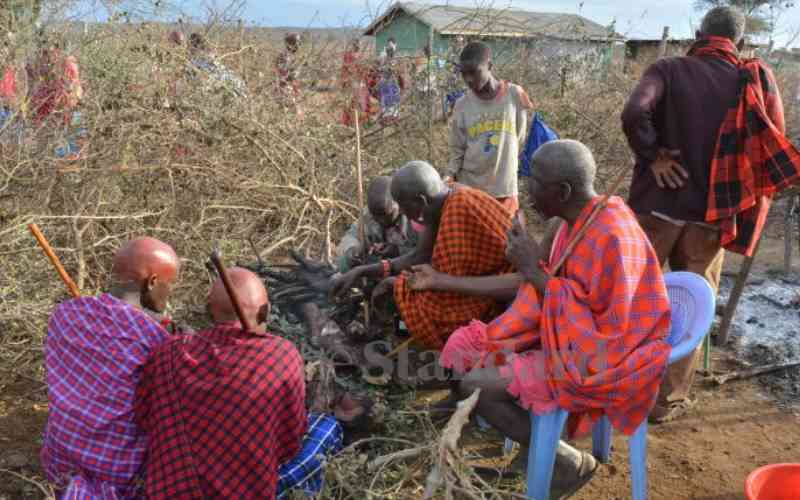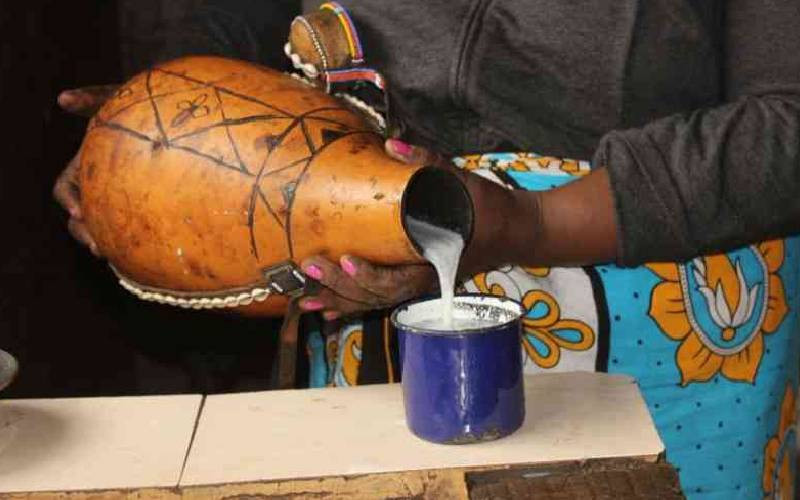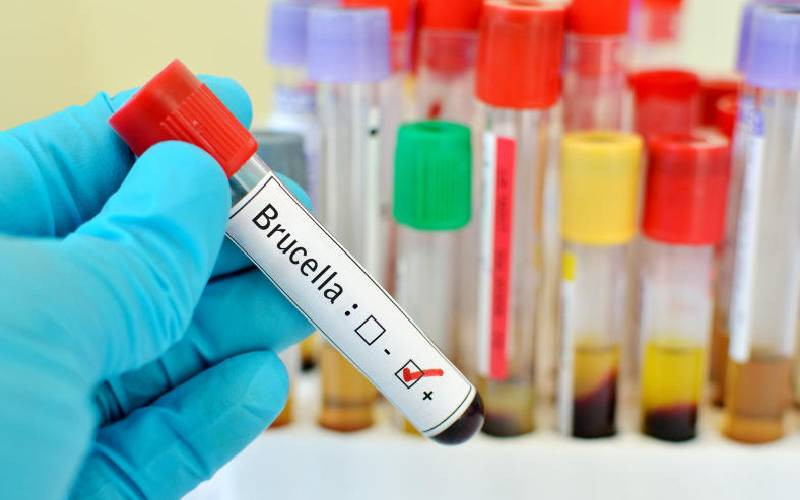
The Maasai community is known to consume large quantities of red meat since the age when teeth can tear into roast ribs.
But most hardly suffer gout and other conditions other communities face after developing keen appetite for red meat.
Well, Health & Science engaged herders, elders, hoteliers and medics and reasons were as varied as the many ways meat is prepared.
 The Standard Group Plc is a multi-media organization with investments in media
platforms spanning newspaper print
operations, television, radio broadcasting, digital and online services. The
Standard Group is recognized as a
leading multi-media house in Kenya with a key influence in matters of national
and international interest.
The Standard Group Plc is a multi-media organization with investments in media
platforms spanning newspaper print
operations, television, radio broadcasting, digital and online services. The
Standard Group is recognized as a
leading multi-media house in Kenya with a key influence in matters of national
and international interest.











